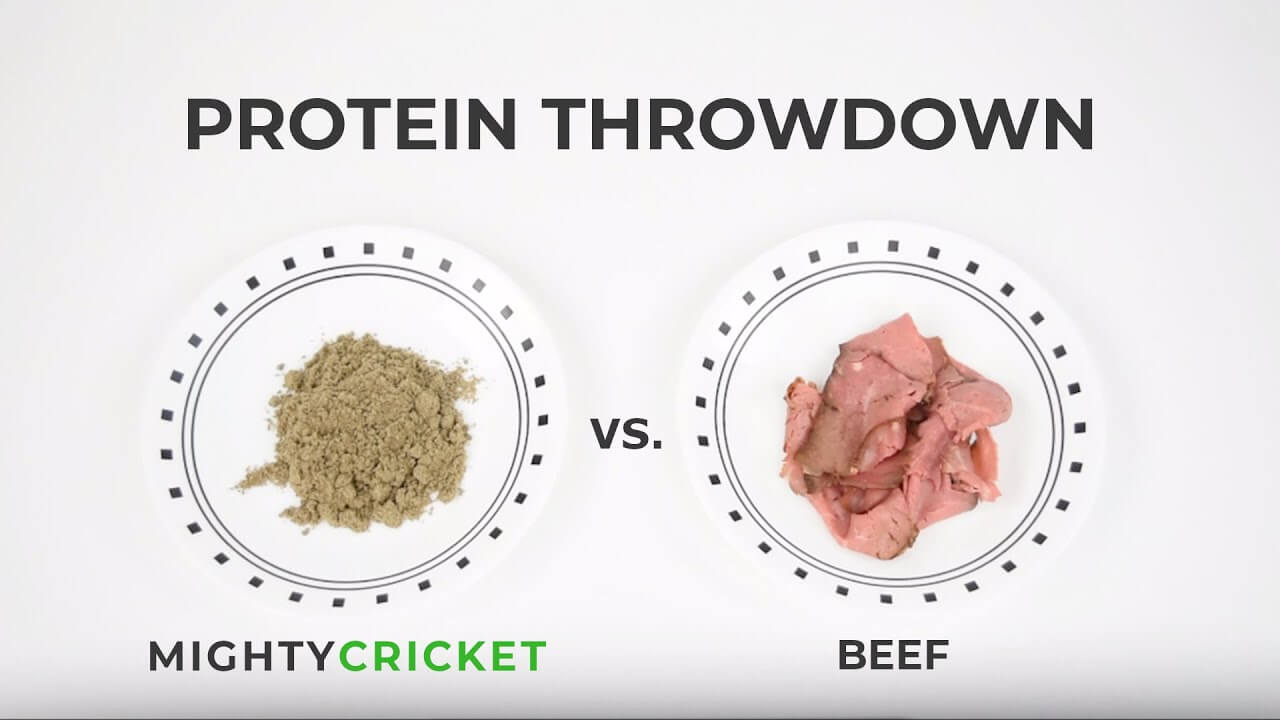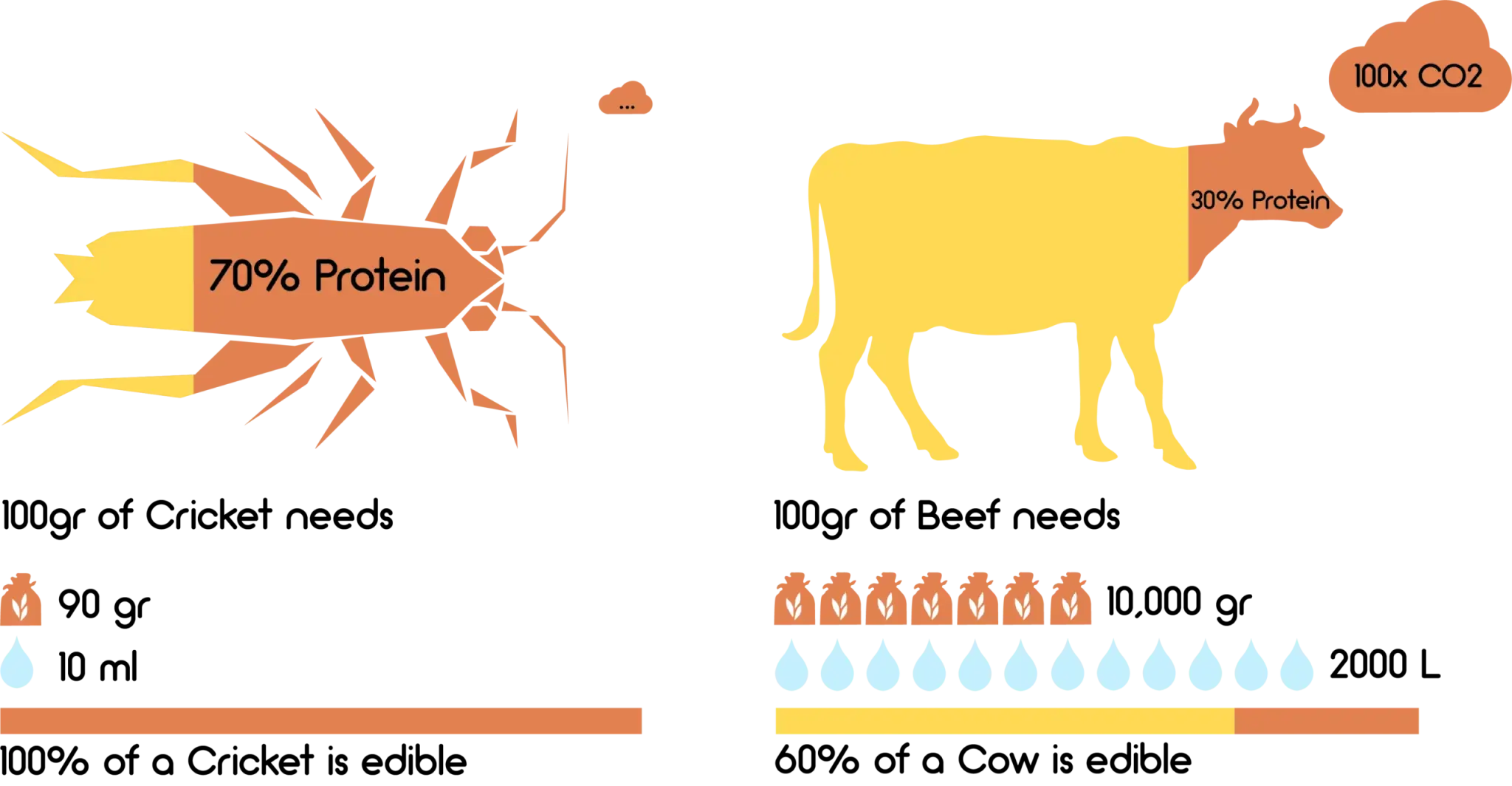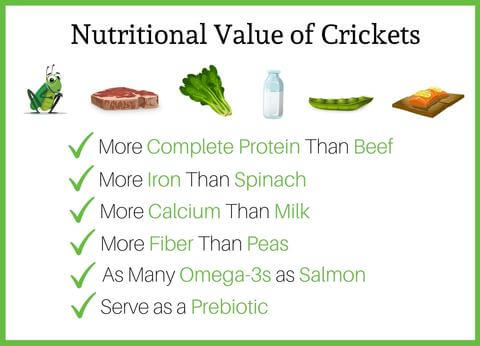CRICKET PROTEIN VS BEEF: WHY YOU SHOULD EAT BUGS

For decades beef was the gold standard for protein. Beef tastes great, is easily digestible, and has essential nutrients such as complete protein, iron, and vitamin b12. There are even several plant-based protein companies with products mimicking beef.
With the rise in plant-based proteins, the reign of meat is starting to fall. But there’s one animal-based protein that is starting to make its debut substantially—cricket protein—and it rivals beef like no plant-based protein can. In fact, crickets contain almost all the nutritional benefits that you get from eating meat, fish, and rye bread – all at once!
Nutritional Comparison.
Let’s start by comparing the nutritional properties of cricket and beef. It is interesting to note that crickets have a protein content of about two to three times higher than beef and lower total fat. Take a look at the chart below to see the comparison.

Cricket: 60%-65% pure protein/ 8g fat/7g fiber
Beef: 17%-40% pure protein/ 11g fat/ 0g fiber
Cricket powder contains 5 times more protein per gram than whole wheat flour and 10 times more vitamin B12 than beef.

Environmental Impact.
What about environmental impact? Well, score another point for crickets!
Bugs are bred at a low economic and environmental cost—using between 50% and 90% less land per kilo of protein and between 40% and 80% less food per kilo of mass obtained than conventional livestock.
While the production of cows, pigs, and farm animals is costly (1.3 billion tons of grain are spent each year on animal fattening) and requires water and space in large quantities, bugs require much less, which makes them more cost-effective for every gram of food. For example, a kilo of beef requires 25 kilos of food; a kilo of crickets requires 2.1 kilos of food.


